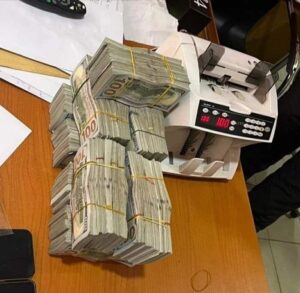
The naira recorded a notable gain against the dollar in the parallel market over the past week, appreciating by three percent to close at N1,570/$1 on Friday—a N50 improvement within five days.
In contrast, the official Nigerian Foreign Exchange Market (NFEM) saw a slight dip, with the naira settling at N1,502.5/$1.
At the start of the week, the naira traded at N1,620/$1 in the parallel market but began to strengthen as dollar supply improved. By Tuesday, it appreciated to N1,610/$1, further rising to N1,605/$1 on Wednesday. This upward trend continued on Thursday at N1,595/$1, culminating in its strongest performance of the week at N1,570/$1 on Friday.
On the official market, the naira remained relatively stable, opening at N1,499/$1 on Monday before making slight adjustments to N1,502/$1 by Thursday. However, it experienced a marginal decline, closing at N1,502.5/$1 on Friday.
READ ALSO:CBN introduces FX code as naira strengthens against dollar
Analysts have linked the naira’s recent gains to increased foreign exchange inflows and strategic policy interventions designed to stabilise the currency. The successful issuance of Nigeria’s Eurobond, along with the domestic dollar-denominated federal government bond, has significantly boosted liquidity, alleviating pressure on the exchange rate.
Ayokunle Olubunmi, Head of Financial Institutions Ratings at Agusto & Co., highlighted the influence of foreign exchange inflows and shifts in fuel import patterns on the naira’s performance.
He explained, “The impact of high USD inflows, given the success of the Eurobond and the domestic FGN bond, has supported the exchange rate. Similarly, the uptick in domestic production of Premium Motor Spirit (PMS), Nigeria’s highest import, has moderated FX demand to an extent. In addition, the CBN’s reforms to sanitise the FX market have helped stabilise the exchange rate.”
This combination of improved dollar supply, robust FX inflows, and targeted economic reforms appears to be providing the much-needed support for the naira’s resilience in the foreign exchange market.


